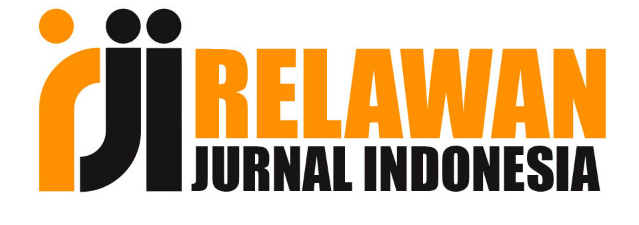Modernization of Islamic Education Learning Ahmad Tafsir Perspective
Abstract
This study aims to examine and analyze more deeply the idea of modernizing Islamic religious education learning in the style of Ahmad Tafsir. The research method used is literature by collecting various reference sources, books, articles, documents related to the topic of study. It can be concluded that the modernization of Islamic religious education learning from Ahmad Tafsir's perspective emphasizes collaboration and integration between spiritual, intellectual and moral intelligence. Considering that these three intelligences are the basic capital for graduates of Islamic religious education, so that they can actualize all their potential in the midst of community life that is supported by high morality and spirituality. Thus, all the abilities and talents of students who are forged during learning do not come out of the ethical values of the Islamic religion itself.
Keywords
References
Arifin, M. (2009). Ilmu Pendidikan Tinjauan Teoritis dan Praktis Berdasarkan Pendekatan Interdisipliner. Bumi Aksara.
Azizan, N., Lubis, M. A., & Muvid, M. B. (2020). Pemanfaatan Media Youtube untuk Meningkatkan Minat Belajar Siswa pada Mata Pelajaran Akidah Akhlak. Darul Ilmi: Jurnal Ilmu Kependidikan Dan Keislaman, 8(2), 195–212. http://jurnal.iain-padangsidimpuan.ac.id/index.php/DI/article/view/3198
Bariroh, Z., SUbekti, A., & Musthofa, I. (2020). Modernisasi Kurikulum Pendidikan Agama Islam di SMP Tazkia International Islamic Boarding School Dau Malang. Vicratina: Jurnal Ilmiah Keagamaan, 5(5). http://riset.unisma.ac.id/index.php/fai/article/view/7775/0
Muvid, M. B. (2020). Mengagas Pembelajaran Interkonektif di Era Society 5.0. Haura Utama.
Muvid, M. B. (2021). Modernisasi Madrasah di Era Milenial Perspektif KH Abdul Wahid Hasyim. Tribakti: Jurnal Pemikiran Keislaman, 32(2), 223–246.
Muvid, M. B., Septiawan, Y., Lubis, M. A., & Zainiyati, H. S. (2022). Shaping socio-critical thinking of junior students using problem-based learning and inquiry strategy. International Journal of Evaluation and Research in Education (IJERE), 11(2). https://ijere.iaescore.com/index.php/IJERE/article/view/21954
Roosinda, F. W., Lestari, N. S., & Utama, A. A. G. S. (2021). Metode Penelitian Kualitatif. Zahir Publishing.
Rusdiana, A. (2017). Pemikiran Ahmad Tafsir tentang Manajemen Pembentuk Insan Kamil Jurnal At-Tarbawi. At-Tarbawi: Jurnal Kajian Kependidikan Islam, 2(2), 97–120. https://doi.org/https://doi.org/10.22515/attarbawi.v2i2.978
Saenah, E. (2022). Pengaruh Modernisasi Abad 21 terhadap Peran Guru dalam Pembelajaran Pendidikan Agama Islam. GUAU: Jurnal Pendidikan Profesi Guru Agama Islam, 2(1). http://studentjournal.iaincurup.ac.id/index.php/guau/article/view/145
Sobirin, M. (2009). Konsep Ahmad Tafsir Tentang Pendidikan Islam Sebagai Usaha Membentuk Insan Kamil. IAIN Walisongo.
Tafsir, A. (2000). Ilmu Pendidikan dalam Perspektif Islam. PT Remaja Rosdakarya.
Tafsir, A. (2008). Filsafat Pendidikan Islam. Remaja Rosdakarya.
Tafsir, A. (2008). Metodologi Pengajaran Agama Islam. Remaja Rosdakarya.
Tafsir, A. (2010). Filsafat Pendidikan Islami Integrasi Jasmani, Rohani, dan Kalbu Memanusiakan Manusia. Remaja Rosdakarya.
Tafsir, A. (2012). Filsafat Ilmu Mengurai Ontologi, Epistemologi dan Aksiologi Pengetahuan. Remaja Rosdakarya.
DOI: 10.28944/maharot.v6i2.861
Refbacks
- There are currently no refbacks.

This work is licensed under a Creative Commons Attribution-NonCommercial-ShareAlike 4.0 International License.






